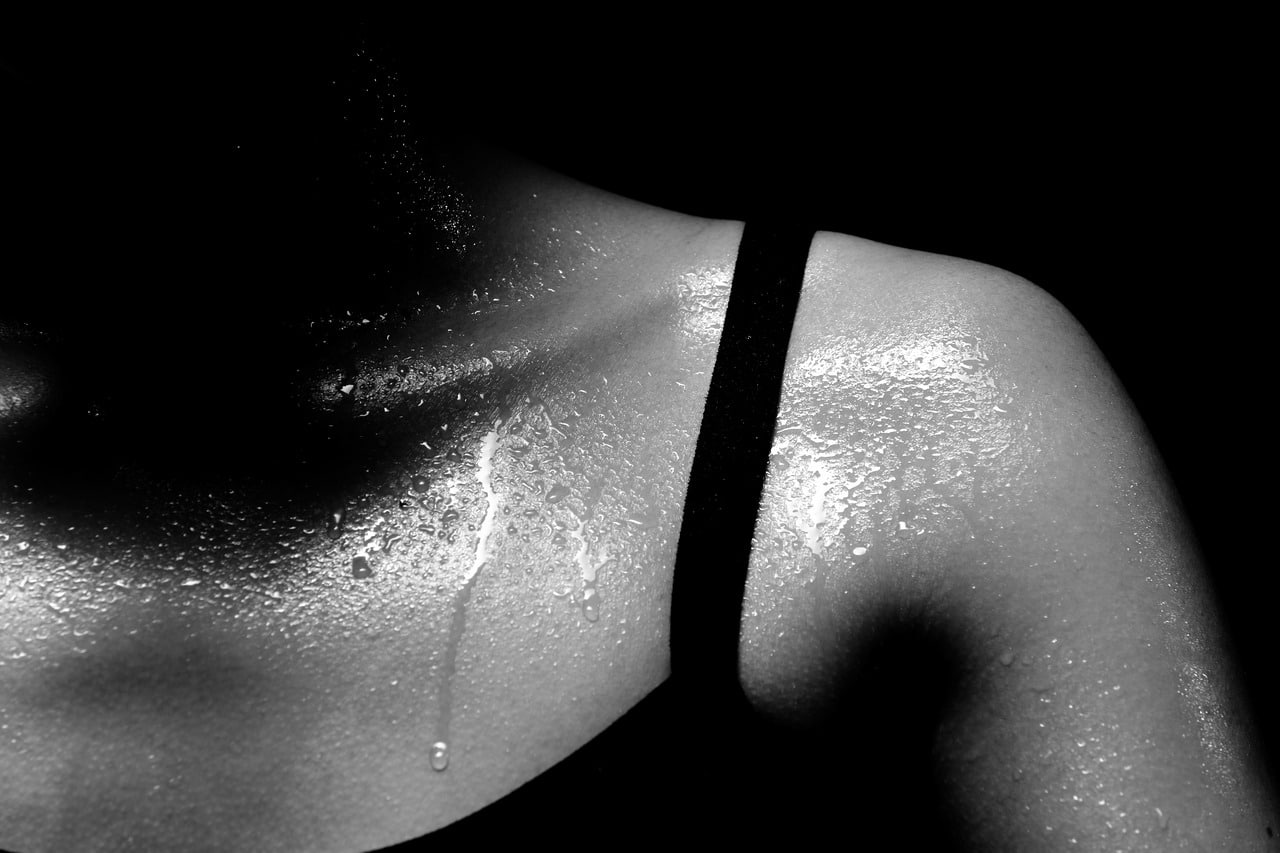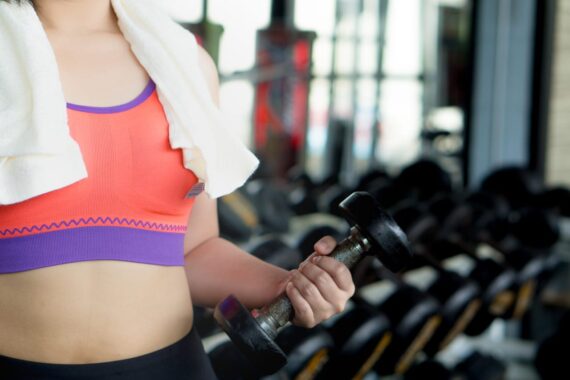
Does Sweating Burn Fat? Let’s Find Out.
Sweating Burn Fat is a normal part of the body that everyone experiences, especially when they are active or it is hot outside. A lot of the time, it means working hard, exercising, and trying to get in better shape. A lot of people think that sweating makes them burn more fat. Many people think that sweating directly means they are losing fat because of this common misconception. It may not seem like there is a link between sweating and losing fat, but there is one.
We’ll go into the science behind sweating, how it affects your ability to burn calories, and whether it truly helps you lose fat. Now that we’ve dispelled the myths and misconceptions surrounding this topic, we hope you have a better understanding of how your body burns fat and how perspiration can support your fitness aims. Let’s start this investigation and discover the facts and myths pertaining to the conventional belief that perspiration is a quick way to lose weight.
Why do people sweat?
It’s important to understand why we sweat in the first place before we can fully understand the link between working out and losing fat. Sweating is an important bodily process that does a lot of important things for the body, including:
A. Sweat Burn Fat for Eccrine and Apocrine
There are two kinds of sweat burn fat in the body: eccrine and apocrine. Many eccrine glands throughout the body produce most of the sweat we use to cool off during exercise or hot weather. Apocrine glands, on the other hand, are located in places like the armpits and groin. They produce a sweat that doesn’t smell when released but becomes smelly when it touches skin bacteria.
B. Controlling the body’s temperature
The main reason people sweat is to keep their bodies at the right temperature. The hypothalamus, a part of the brain, tells the eccrine sweat glands to make sweat when your body gets too hot from exercise or the outside heat. Sweating gets rid of heat from the skin’s surface and helps cool the body down, keeping its temperature fixed.
C. Balance of Electrolytes
Not only is sweat water, but it also has electrolytes like salt and potassium that your body needs. These electrolytes are essential for keeping many body processes going, like nerve and muscle function. The balance of these chemicals in the body is helped by sweating.
D. Cleaning up
While it’s not the main reason people sweat, some supporters of detox diets and baths say that sweating can help the body get rid of toxins. Even though scientists disagree with this idea, it’s still important to note that sweating does help get rid of some waste.
In short
Before looking into how sweating burn fat can help you lose fat, it’s important to understand how it works. Eccrine and apocrine sweat glands, responsible for controlling body temperature, produce different types of sweat. Sweating also helps keep electrolyte balance by releasing sodium and potassium, and while it’s not its main job, it does help the body get rid of some waste. Sweating is an important bodily process because it helps cool the body down when it gets too hot.
How Sweating and Calorific Burn Work Together
Now that we know why we sweat, it’s time to answer a crucial question: Does sweating make you burn a lot more calories, which means you lose fat? Let us look at the complicated link between sweating and burning calories:
A. A better understanding of the link
Sweating burns some calories, but not many. Because your body only needs a small amount of energy to make and release sweat, it won’t have a big effect on how many calories you burn altogether. In fact, the calories you burn when you sweat are usually not that important in a larger plan to lose weight.
B. Working out and sweating
It is important to remember that you burn calories when you do activities that make you sweat, like running, cycling, or working out at the gym. When you work out, you sweat because your body is trying to cool down and keep its temperature steady. However, the calories you burn during exercise come from more than just sweating. Your metabolism speeds up and your muscles get stronger.
C. Things that make people sweat
Variables like genetics, exercise level, environmental conditions, and level of hydration can make a big difference in how much someone sweats. There are people who naturally sweat more than others, but that doesn’t mean that they lose fat faster.
D. Being thirsty and sweating
Dehydration can happen if you sweat a lot without drinking enough water. This might make you lose weight temporarily because you’ll be losing water, but it’s not a good or long-term way to lose fat. Dehydration can be bad for your health and is not a good way to reach your long-term exercise goals.
In short
There are many ways that sweating can help you lose fat. While it’s true that sweating burns some calories, the energy used to make sweat is very small and doesn’t play a big role in total calorie loss. Even though exercise may make you sweat, the main reasons your body burns calories are because your metabolism speeds up and your muscles work. Individual factors, such as DNA and how well-hydrated you are, can also affect how much sweat you make. You may lose weight temporarily by sweating too much and not drinking enough water to replace the fluids you lose. However, this is not a good or long-term way to lose fat and can have negative health effects.
Does sweating burn fat help you lose weight or fat?
People often think that sweating helps them lose weight, but this isn’t always true. People often confuse sweating with fat loss. This part will talk about the important difference between losing weight and losing fat, as well as how sweating fits into this picture:
A. Telling the difference between losing weight and losing fat
Weight Loss: If you sweat a lot, especially when it’s hot outside or when you’re doing a lot of physical exercise, your body weight may go down. Still, it’s important to know that this weight loss is mostly because you’re sweating out fluids and minerals. People often refer to this as “water weight,” and drinking water can easily restore it.
Losing Fat: Losing fat, on the other hand, means reducing fatty tissue, which is how the body stores extra energy. When you constantly keep a calorie deficit, which means you burn more calories than you eat for a long time, this happens. Fat loss happens slowly and leads to a drop in body fat percentage that lasts longer.
Is There a Difference Between Losing Fat and Losing Weight?
B. The Role of How Much Water You Sweat
Because you lose water when you sweat, it can look like you lose a lot of weight, which can be confusing for people who want to lose fat permanently. Your body will gain back the weight you lost as soon as you drink water or other fluids.
Rapid fluid loss can happen with diuretics or activities that make you sweat a lot, like saunas or using products that make you sweat a lot. However, this is not a good or long-term way to lose weight.
C. Weight loss through sweating is only temporary.
When you sweat, you lose weight, but it’s only temporary. You don’t lose fat permanently. It doesn’t deal with the main causes of extra body fat, like bad eating and exercise habits.
If you only focus on sweating burn fat as a way to lose weight, you might be let down when the weight comes back quickly after you drink some water.
In short
People who sweat may temporarily lose weight because they lose water, but this is not the same thing as losing fat. A steady calorie deficit, regular exercise, and healthy eating habits are all ways to lose fat. Even though sweating is a normal bodily response that does important things, it is not a straight or effective way to lose fat that will stay off. To reach your fat loss goals in a healthy way that will last, you need to make changes to your food, exercise routine, and overall way of life.
Myths About Making Yourself Sweat and Losing Weight
Many myths and false beliefs about sweating burn fat and fat loss have grown as more people strive to get healthier and leaner. Many people think that sweating can help them lose weight. In this part, we’ll bust some of the most common myths about sweating and weight loss:
A. Busting the myth that you can “sweat out” fat
People sometimes think that sweating can get rid of fat from the body.
Creating a continuous calorie deficit by eating fewer calories than you burn is what causes fat loss. Sweating burn fat doesn’t get rid of fat in a straight-forward way. The main thing it does is help keep body temperature normal.
B. Getting rid of false ideas about using saunas
Myth: If you stay in a sauna or steam room for a long time, you will lose a lot of fat.
Reality: Using a sauna mostly makes you sweat, which can make you temporarily lose fluids and become dehydrated. When you drink water again, you quickly gain back any weight you lost in the sauna. There may be other health benefits to saunas, but they are not good for losing fat.
C. Stressing how important diet and exercise are.
Misconception: If you sweat a lot during your workout, it means you’re burning fat.
Reality: The number of calories you burn and how hard you work out are more important signs of fat loss than how much you sweat. For long-term fat loss, you need to eat a healthy diet and work out regularly.
D. Sweating as a Way to Get Rid of Toxins
Myth: Lots of sweating can help the body get rid of toxins and cleanse.
Reality: The liver and kidneys are the body’s main cleansing organs, though sweating does help get rid of some waste. For a complete clean, you need to do more than just sweat.
E. Wrong Ideas About Reducing Spots
Myth: Losing fat in one area of the body by sweating a lot will help lose fat in that area only.
The reality is that spot reduction is not achievable. Losing fat happens all over the body, and you can’t target certain places by working out or sweating. Adding muscle to certain places can make someone look better, but losing fat all over the body is what really matters.
How to Lose Fat in a Healthy Way
Our bodies sweat, which can help you lose weight, but you need to do more to lose fat. Here are some useful tips for losing fat in a healthy way that will last:
A. Eat a healthy, balanced diet
A healthy diet should include a variety of whole foods, such as fruits, veggies, lean proteins, whole grains, and healthy fats.
Watch your portions and keep track of the calories you eat to make the calorie balance you need to lose fat.
Stay away from crash diets and tight rules, as they can be harmful and impossible to follow for a long time.
B. Do regular physical activities
Strength training and cardio (like jogging and cycling) should both be a part of your fitness practice.
The government says that you should do at least 150 minutes of moderate-intensity aerobic exercise or 75 minutes of vigorous-intensity aerobic exercise each week.
C. Keep track of how many calories you eat and how many you burn.
Write down what you eat and how much you eat in a food journal.
Use fitness apps or smart tech to keep track of how many calories you burn while you work out.
D. Drink enough water.
Make sure you stay hydrated by drinking water throughout the day. Staying hydrated is beneficial for your health and can help you lose fat.
Avoid practices that make you sweat a lot and become dehydrated because they are not good or long-term ways to lose weight.
E. Get enough sleep.
Aim to get between 7 and 9 hours of good sleep every night. Not getting enough sleep can throw off hormones that control hunger, making you crave bad foods more.
F. Deal with stress
As part of your daily routine, do things that help you relax, like yoga, meditation, or deep breathing routines. Having a lot of stress can make it harder to lose fat.
Set goals that you can reach.
Set fat loss goals that you can reach in small steps. Extremely quick weight loss is challenging to keep off and can cause health problems.
H. Get help from a professional
You might want to talk to a registered dietitian, personal trainer, or health care worker about your needs and goals when it comes to nutrition and exercise.
I. Put long-term health first
Make long-term lifestyle changes to improve your health and well-being instead of quick fixes. Long-term fat loss should improve your health, not just your appearance.
Advice from iVate Diet Consultation
In reality, sweating is the body’s way of getting rid of water and waste. This causes an almost unnoticeable change in water weight, which makes a person feel a little lighter.
This loss of water is easy to make up for when you drink more water, which is highly suggested.
To refresh, you should always drink pure water. If you don’t, you could end up very thirsty and feeling very tired, dizzy, or with a weak or rapid heartbeat.
In conclusion
If you want to get fit and lose fat, you need to understand the real purpose of sweating. Sweating is a basic bodily process that has many benefits, such as keeping you cool, cleaning your skin, and reducing stress. However, it’s important to note that sweating alone won’t lead to significant fat loss. It’s true that sweating burns some calories, but that amount is tiny and doesn’t matter much in the context of a complete fat loss plan.
In order to lose fat in a healthy way that lasts, people should focus on a balanced diet, regular exercise, staying hydrated, and properly managing their stress. People who work out should see sweating as a normal side effect and not as the main sign that they are losing fat. People can reach their fat loss goals and improve their general health in the long term by living a balanced life that puts wellness first. Burn
Faq's
- Does sweating burn fat or just water weight?
Sweating burn fat is a common myth. Sweating primarily helps regulate body temperature and leads to water loss, not fat loss. However, high-intensity workouts that cause sweating can contribute to overall calorie burning, which may lead to fat loss over time. - Can more sweating lead to faster fat loss?
Simply sweating more does not mean you are burning more fat. Fat loss occurs when you burn more calories than you consume. While intense workouts can cause sweating, it is the calorie deficit that leads to fat reduction. - Does sitting in a sauna help with fat loss?
While a sauna can make you sweat and temporarily reduce water weight, it does not directly burn fat. Sweating burn fat is a misconception; true fat loss requires physical activity and a proper diet. - Why do some people sweat more than others during workouts?
The amount of sweat varies based on factors like genetics, fitness level, and climate. Sweating burn fat is not directly linked, as some people may sweat more but burn fewer calories, while others may burn more calories with less sweating. - What is the best way to burn fat effectively?
Instead of relying on the idea that sweating burn fat, focus on a balanced approach—regular exercise, strength training, a calorie-controlled diet, and staying hydrated. These factors contribute to sustainable fat loss.
Previous Story



